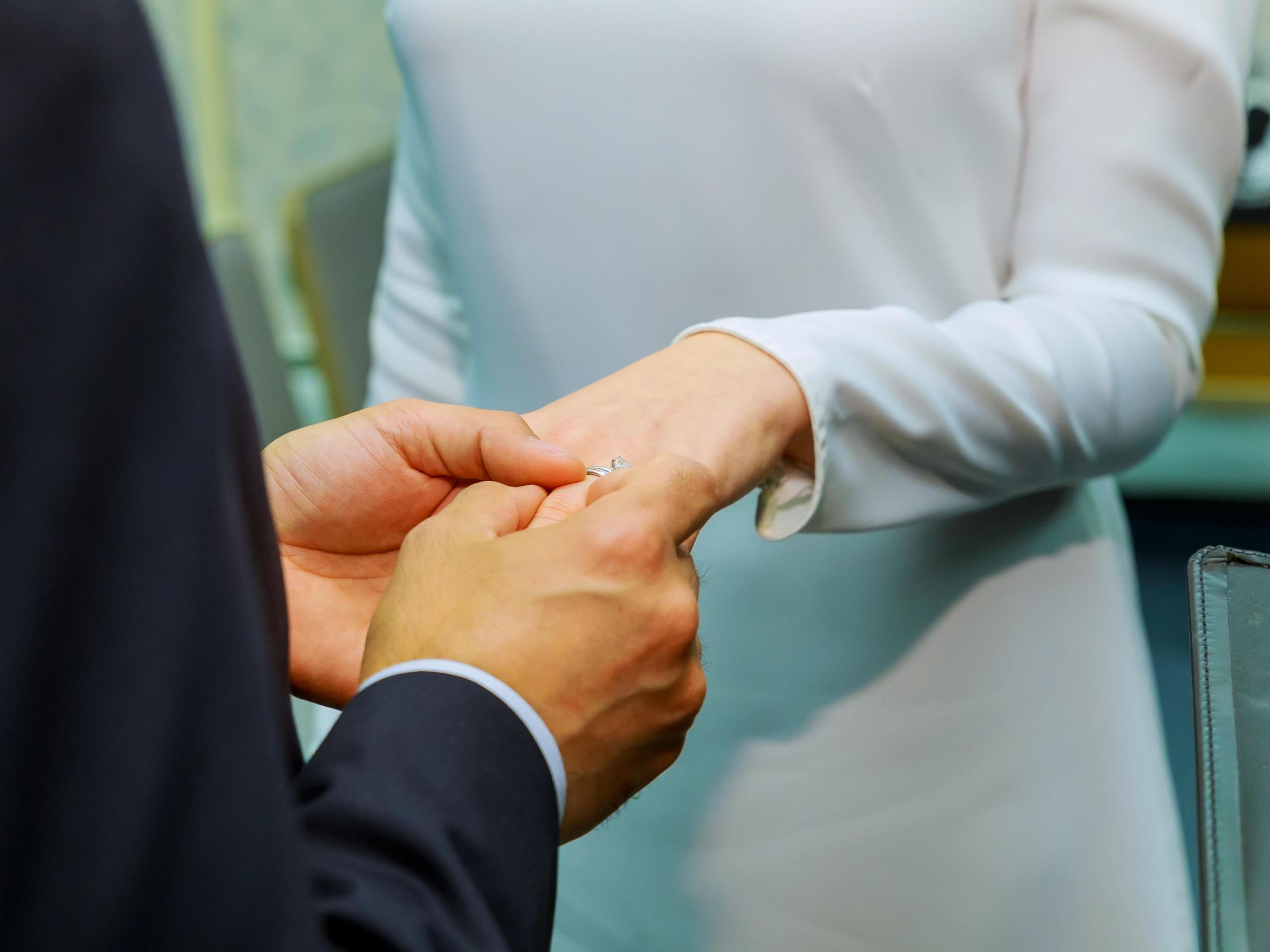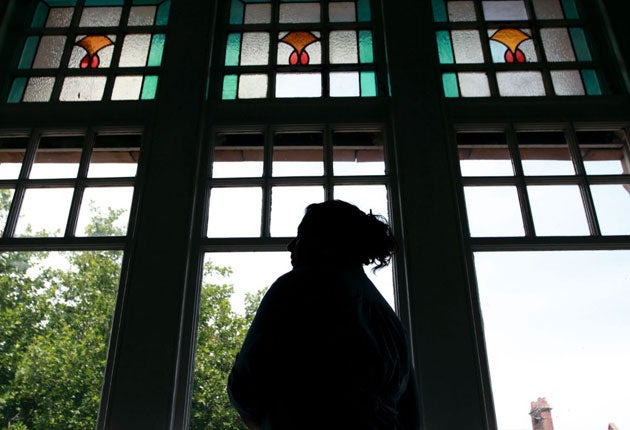People with learning disabilities reportedly at increased risk of forced marriage
Cases of people with learning disabilities make up approximately 10 per cent of all those reported to the government’s Forced Marriage Unit

Your support helps us to tell the story
From reproductive rights to climate change to Big Tech, The Independent is on the ground when the story is developing. Whether it's investigating the financials of Elon Musk's pro-Trump PAC or producing our latest documentary, 'The A Word', which shines a light on the American women fighting for reproductive rights, we know how important it is to parse out the facts from the messaging.
At such a critical moment in US history, we need reporters on the ground. Your donation allows us to keep sending journalists to speak to both sides of the story.
The Independent is trusted by Americans across the entire political spectrum. And unlike many other quality news outlets, we choose not to lock Americans out of our reporting and analysis with paywalls. We believe quality journalism should be available to everyone, paid for by those who can afford it.
Your support makes all the difference.In a recent landmark case, a mother received the first conviction in England for forcing someone to marry. She had tricked her daughter, then aged 17, into travelling to Pakistan to be married as soon as she turned 18. The girl had a learning disability, but this was only very briefly reported in press coverage of the case.
My research has shown how people with learning disabilities may be vulnerable to being tricked or coerced into forced marriage. They need more support to ensure they are protected from harm.
Statistics from the government’s Forced Marriage Unit show a rise in the number of people with learning disabilities being reported who may have been subject to forced marriage, or at risk of it – from 53 cases in 2010 to 125 in 2017.
Cases of people with learning disabilities make up approximately 10 per cent of all those reported. More cases of men with learning disabilities than women are reported. This is in contrast with cases of people without learning disabilities, where about 80 per cent of cases reported are women.
The act of forcing someone to marry was criminalised in 2014 through the Anti-social Behaviour, Crime and Policing Act. A forced marriage is defined by the British government as one “where one or both people do not (or in cases of people with learning disabilities, cannot) consent to the marriage and pressure or abuse is used”.
Being able to understand and consent to marriage is a requirement of all marriages – this is often described as having capacity to consent. Under the 2014 law, any marriage of a person who cannot consent for themselves is a forced marriage.
Forced marriage should not to be confused with arranged marriage. In arranged marriages, the family of both spouses take a leading role in arranging the marriage but the decision to accept the arrangement or not remains with the prospective spouses.
Forced marriage is an abuse of human rights and my research shows it often results in a range of abuses including physical, financial and sexual abuse and emotional harm. In some cases, both the person with the learning disability and their spouse are victims, and experience abuse from extended family members.
My research has also shown that it’s difficult for social workers and other professionals to recognise when someone is at risk, particularly as the specific vulnerabilities of people with learning disabilities are often not recognised in this context.
We interviewed people with learning disabilities, their parents and other family members, as well as faith leaders and practitioners such as social workers, health workers and the police.
We found that the motivators for forcing someone with a learning disability to marry can be very different to the reasons why people without learning disabilities are forced to marry. In many cases, family members are looking for a carer for their relative. One carer told me:
It’s something that every parent wants for their child is for them to be happily settled in life with someone who’s going to look after them when we’re not around.
Many parents of people with learning disabilities might not realise they are committing an offence if their son or daughter does not have capacity to consent. However, if the person is unable to consent this would be a forced marriage, even if the person with the learning disability appeared happy about it.

The concept of capacity to consent to marriage was often misunderstood. Some of those we interviewed believed that as long as the person with a learning disability could say yes to the marriage this was enough for it to go ahead, and that parents are the best judges of a person’s capacity. But this isn’t always the case.
People with learning disabilities may not feel able to go against their parents wishes, particularly if they rely upon them for support. A person with a learning disability told us about saying “no”:
It’s hard isn’t it? Because you could lose everything, you could lose your family.
Another said:
There’s lots of people who I know who wouldn’t be able to say no to their mums and dads.
Most often families are looking for a long term carer for their relative and as such believe they are doing the right thing.
It is crucial that the rights of people with learning disabilities to marry are not thwarted where they have capacity to consent, but it’s also crucial that people are protected from harm where they do not have capacity to consent.
For some families, the news that their son or daughter cannot marry will create difficulties in terms of how they are viewed by their community and so they may continue with plans to force them to marry.
As part of our research, we produced a range of free resources aimed at people with learning disabilities and their families, including practical guidance and tools for assessing the capacity to consent to marriage.
is an assistant professor in social work at the University of Nottingham. This article was originally published on TheConversation.com
Join our commenting forum
Join thought-provoking conversations, follow other Independent readers and see their replies
Comments